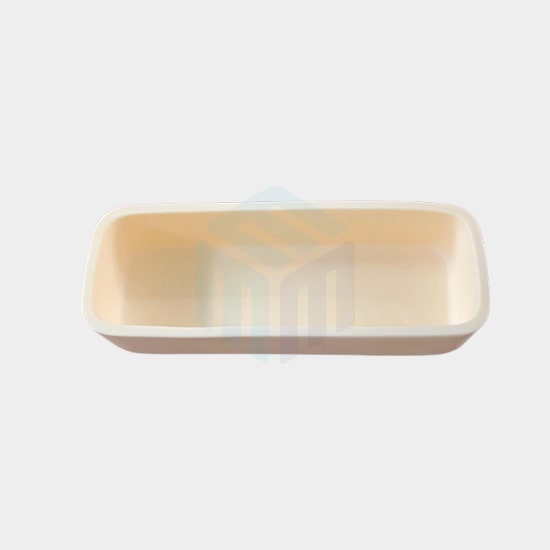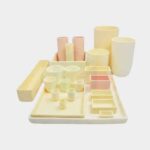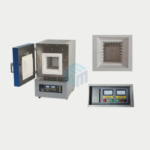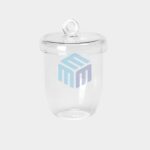When working in high-temperature environments, choosing the right crucible material is essential for ensuring durability, chemical compatibility, and thermal efficiency. Alumina crucibles are widely used due to their high melting point and excellent resistance to corrosion and wear. However, other ceramic materials like zirconia, silicon carbide, and magnesia also offer unique advantages. In this blog, we’ll compare alumina crucibles with other ceramic options to help you make an informed decision based on your specific laboratory or industrial needs.
When comparing alumina crucibles with other ceramic crucibles, it’s essential to evaluate properties like thermal stability, mechanical strength, chemical resistance, and cost. Here’s a comparison of alumina crucibles with other common ceramic crucibles:
Thermal Stability
- Alumina Crucibles:
- Temperature Resistance: Can withstand temperatures up to 1,700°C or higher.
- Thermal Shock Resistance: Moderate, making them suitable for applications with steady temperatures.
- Zirconia Crucibles:
- Temperature Resistance: Can withstand temperatures up to 2,200°C.
- Thermal Shock Resistance: High, ideal for applications involving rapid temperature changes.
- Silicon Carbide (SiC) Crucibles:
- Temperature Resistance: Can withstand temperatures up to 1,600°C.
- Thermal Shock Resistance: Very high, suitable for extreme thermal cycling.
- Quartz Crucibles:
- Temperature Resistance: Up to 1,050°C.
- Thermal Shock Resistance: High, but lower than SiC and Zirconia.
Mechanical Strength
- Alumina Crucibles:
- Strength: High mechanical strength, particularly in high-purity forms (99.8%).
- Durability: Resistant to deformation under high loads.
- Zirconia Crucibles:
- Strength: Extremely high mechanical strength, even at elevated temperatures.
- Durability: Superior to alumina, especially in harsh conditions.
- Silicon Carbide Crucibles:
- Strength: Very high, with excellent load-bearing capacity.
- Durability: Excellent, especially in abrasive or erosive environments.
- Quartz Crucibles:
- Strength: Lower mechanical strength compared to alumina and zirconia.
- Durability: More fragile and prone to breaking under mechanical stress.
Chemical Resistance
- Alumina Crucibles:
- Chemical Inertness: Highly resistant to most acids and alkalis, though vulnerable to HF and some strong bases.
- Zirconia Crucibles:
- Chemical Inertness: Excellent resistance to a wide range of chemicals, including alkalis and acids.
- Silicon Carbide Crucibles:
- Chemical Inertness: Resistant to most chemicals, especially in high-temperature environments.
- Quartz Crucibles:
- Chemical Inertness: Very high resistance to acids, except for HF; low resistance to alkalis.
Electrical Insulation
- Alumina Crucibles:
- Insulation: Excellent electrical insulator, making it ideal for high-temperature electrical applications.
- Zirconia Crucibles:
- Insulation: Good electrical insulation, though slightly lower than alumina.
- Silicon Carbide Crucibles:
- Insulation: Not an electrical insulator, as SiC is a semiconductor.
- Quartz Crucibles:
- Insulation: Excellent electrical insulation, particularly at high frequencies.
Cost
- Alumina Crucibles:
- Cost: Generally affordable, especially in lower purity grades (95-99.5%). Higher purity grades are more expensive.
- Zirconia Crucibles:
- Cost: Expensive due to superior properties and higher processing costs.
- Silicon Carbide Crucibles:
- Cost: Moderate to high, depending on the grade and application.
- Quartz Crucibles:
- Cost: Generally lower than alumina and zirconia, but may vary depending on purity and size.
Application Suitability
- Alumina Crucibles:
- Ideal For: High-temperature applications, chemical processing, and environments requiring good thermal and electrical insulation.
- Zirconia Crucibles:
- Ideal For: Ultra-high temperature applications, extreme thermal cycling, and corrosive environments.
- Silicon Carbide Crucibles:
- Ideal For: Abrasive environments, metallurgical processes, and applications with extreme thermal cycling.
- Quartz Crucibles:
- Ideal For: Low to moderate-temperature applications, where high chemical resistance (especially to acids) is required.
Summary
In conclusion, while alumina crucibles are a popular choice due to their excellent thermal stability, affordability, and chemical resistance, other ceramic crucibles like zirconia, silicon carbide, and magnesia offer distinct benefits depending on the application. Zirconia provides superior insulation, silicon carbide offers high thermal conductivity, and magnesia excels in basic environments. Choosing the right crucible depends on your specific temperature range, chemical environment, and budget. For reliable performance and expert guidance, consider sourcing from a trusted alumina crucible supplier in the Australia like M-Kube Enterprise.
M-Kube Enterprise is an Australian company catering customized laboratory products, laboratory consumables, and laboratory solutions in Australia, India, the USA, New Zealand, Singapore, Malaysia, South Korea, Dubai, the Philippines, Indonesia, and Vietnam.






